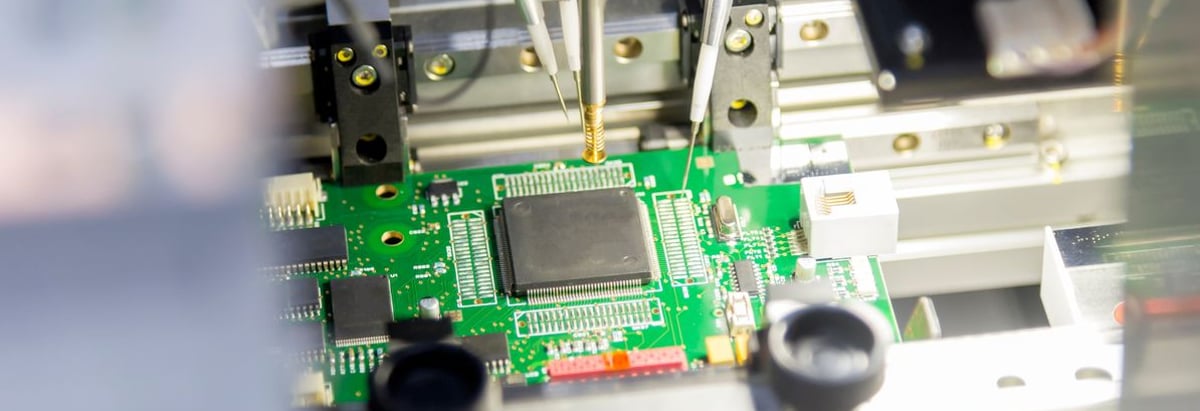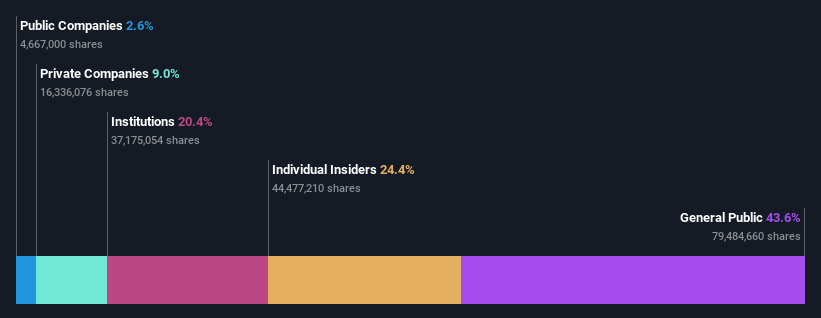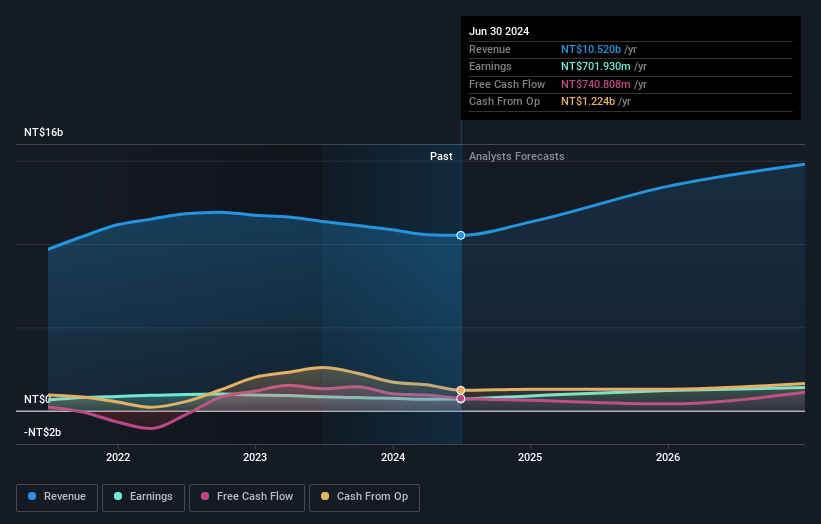- Taiwan
- /
- Semiconductors
- /
- TWSE:2351
SDI Corporation's (TWSE:2351) stock price dropped 7.5% last week; individual investors would not be happy

Key Insights
- Significant control over SDI by individual investors implies that the general public has more power to influence management and governance-related decisions
- 51% of the business is held by the top 14 shareholders
- Insiders own 24% of SDI
Every investor in SDI Corporation (TWSE:2351) should be aware of the most powerful shareholder groups. And the group that holds the biggest piece of the pie are individual investors with 44% ownership. In other words, the group stands to gain the most (or lose the most) from their investment into the company.
Following a 7.5% decrease in the stock price last week, individual investors suffered the most losses, but insiders who own 24% stock also took a hit.
In the chart below, we zoom in on the different ownership groups of SDI.
Check out our latest analysis for SDI

What Does The Institutional Ownership Tell Us About SDI?
Institutional investors commonly compare their own returns to the returns of a commonly followed index. So they generally do consider buying larger companies that are included in the relevant benchmark index.
We can see that SDI does have institutional investors; and they hold a good portion of the company's stock. This implies the analysts working for those institutions have looked at the stock and they like it. But just like anyone else, they could be wrong. It is not uncommon to see a big share price drop if two large institutional investors try to sell out of a stock at the same time. So it is worth checking the past earnings trajectory of SDI, (below). Of course, keep in mind that there are other factors to consider, too.

Hedge funds don't have many shares in SDI. Our data shows that Jau Shyong Chen is the largest shareholder with 17% of shares outstanding. In comparison, the second and third largest shareholders hold about 6.7% and 3.4% of the stock. Additionally, the company's CEO Wei Te Chen directly holds 3.4% of the total shares outstanding.
After doing some more digging, we found that the top 14 have the combined ownership of 51% in the company, suggesting that no single shareholder has significant control over the company.
While studying institutional ownership for a company can add value to your research, it is also a good practice to research analyst recommendations to get a deeper understand of a stock's expected performance. There are plenty of analysts covering the stock, so it might be worth seeing what they are forecasting, too.
Insider Ownership Of SDI
The definition of an insider can differ slightly between different countries, but members of the board of directors always count. The company management answer to the board and the latter should represent the interests of shareholders. Notably, sometimes top-level managers are on the board themselves.
I generally consider insider ownership to be a good thing. However, on some occasions it makes it more difficult for other shareholders to hold the board accountable for decisions.
It seems insiders own a significant proportion of SDI Corporation. It has a market capitalization of just NT$22b, and insiders have NT$5.5b worth of shares in their own names. It is great to see insiders so invested in the business. It might be worth checking if those insiders have been buying recently.
General Public Ownership
The general public-- including retail investors -- own 44% stake in the company, and hence can't easily be ignored. While this group can't necessarily call the shots, it can certainly have a real influence on how the company is run.
Private Company Ownership
It seems that Private Companies own 9.0%, of the SDI stock. Private companies may be related parties. Sometimes insiders have an interest in a public company through a holding in a private company, rather than in their own capacity as an individual. While it's hard to draw any broad stroke conclusions, it is worth noting as an area for further research.
Next Steps:
It's always worth thinking about the different groups who own shares in a company. But to understand SDI better, we need to consider many other factors. Like risks, for instance. Every company has them, and we've spotted 2 warning signs for SDI (of which 1 is significant!) you should know about.
If you would prefer discover what analysts are predicting in terms of future growth, do not miss this free report on analyst forecasts.
NB: Figures in this article are calculated using data from the last twelve months, which refer to the 12-month period ending on the last date of the month the financial statement is dated. This may not be consistent with full year annual report figures.
New: Manage All Your Stock Portfolios in One Place
We've created the ultimate portfolio companion for stock investors, and it's free.
• Connect an unlimited number of Portfolios and see your total in one currency
• Be alerted to new Warning Signs or Risks via email or mobile
• Track the Fair Value of your stocks
Have feedback on this article? Concerned about the content? Get in touch with us directly. Alternatively, email editorial-team (at) simplywallst.com.
This article by Simply Wall St is general in nature. We provide commentary based on historical data and analyst forecasts only using an unbiased methodology and our articles are not intended to be financial advice. It does not constitute a recommendation to buy or sell any stock, and does not take account of your objectives, or your financial situation. We aim to bring you long-term focused analysis driven by fundamental data. Note that our analysis may not factor in the latest price-sensitive company announcements or qualitative material. Simply Wall St has no position in any stocks mentioned.
About TWSE:2351
SDI
Manufactures and sells semiconductor lead frames, LED lead frames, stationery and office products, and high precision dies in Taiwan, China, Japan, Malaysia, and internationally.
Flawless balance sheet with reasonable growth potential and pays a dividend.


